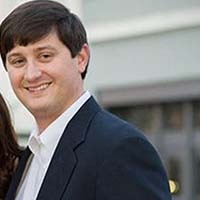Lincoln County, LA Juvenile Law Lawyers
Sponsored Law Firm
-
 x
x

Click For More Info:
-
John D & Eric G Johnson Law Firm, LLC
415 Main St Minden, LA 71055» view mapCriminal Defense and Accident & Injury Fighting for You When You Need It the Most
At the John D. & Eric G. Johnson Law Firm, LLC, attorney Eric Johnson is renowned for his handling of cases throughout Minden and north Louisiana.
800-768-5820
Not enough matches for Lincoln Juvenile Law lawyer.
Below are all Lincoln lawyers.
Mike Smith
✓ VERIFIEDAccident & Injury, Divorce & Family Law, Estate, Business, Car Accident
Mike’s Practice focuses on personal injury, auto accidents, and products liability; while he also has experience in estate matters and family law. ... (more)
Richard "Rick" Gallot
Federal Appellate Practice, Criminal, Medical Malpractice, Animal Bite
Status: In Good Standing Licensed: 34 Years
Allyson Bleich Foster
Real Estate, International, Estate, Business
Status: In Good Standing Licensed: 17 Years
Allyson Bleich Foster
Real Estate, International, Estate, Business
Status: In Good Standing Licensed: 17 Years
Paul Heath Hattaway
Family Law, Civil Rights, Corporate, Personal Injury
Status: In Good Standing Licensed: 11 Years
Tyler Graham Storms
Construction, Litigation, Employee Rights, Personal Injury, Car Accident
Status: In Good Standing Licensed: 28 Years
Benjamin Jay Durrett
Real Estate Other, Child Custody, Criminal, Household Mold
Status: In Good Standing Licensed: 19 Years
Raymond H Madden
Real Estate, Business Successions, Estate, Contract, Estate Planning
Status: In Good Standing Licensed: 54 Years
 Eric Johnson Minden, LA
Eric Johnson Minden, LA Practice AreasExpertise
Practice AreasExpertise

